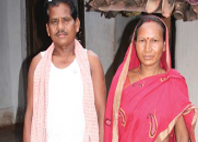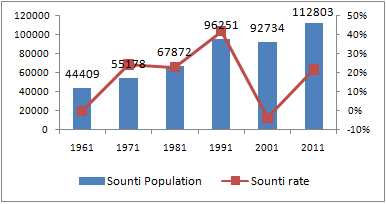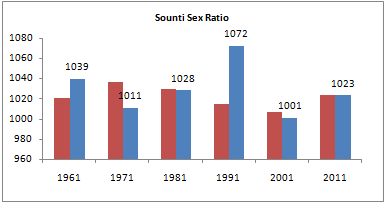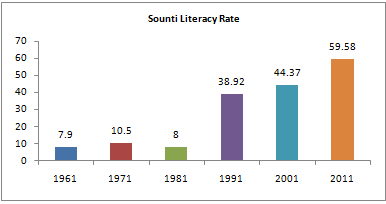A scheduled tribe of Odisha.

Location (Major) : Keonjhar, Mayurbhanj, Khurda
Language : Odia (Indo-Aryan)
Major Occupation : Cultivation, Wage Earning, Livestock Rearing, Forestry
Socio-cultural Features
SOUNTI in Odisha is a local term which means “gathering things”. The community is believed to have originated out of a union of persons out casted from different communities in the past. They have synonyms like Bedajal and Berdajhal. SOUNTI in Odisha is a local term which means “gathering things”. The community is believed to have originated out of a union of persons out casted from different communities in the past. They have synonyms like Bedajal and Berdajhal. The Sounti settlement are traditionally uniclan and homogeneous. In multi ethnic villages they live in separate hamlets maintaining distance from other communities. Family is generally nuclear, patrilocal and patrilineal. The community comes under one totemic gotra, Nageswar (cobra) and is divided into a number of exogamous clans (Khilli) like Doldasia, Bardia, Saru and Tangsaria, etc. Family is predominately monogamous, though polygene is still found in a few cases. They prefer marriage by negotiation. Payment of bride price is obligatory. Remarriage of widows, widowers, divorcees, junior levirate and sororate are permitted. The birth pollution is observed for twentyone days. They practise both cremation and burial to dispose off their dead. The bereaved family observes death pollution for ten days. The Sounti are Hindus by faith. They worship village deities like Thakurani and Mangala and other Hindu deities like Siva and Raghunath and observe Hindu festivals. Dehury is their traditional priest. The Sounti have their own traditional community council headed by village chief and influential elders. It settles family disputes and acts as guardian of traditional norms and customs.


